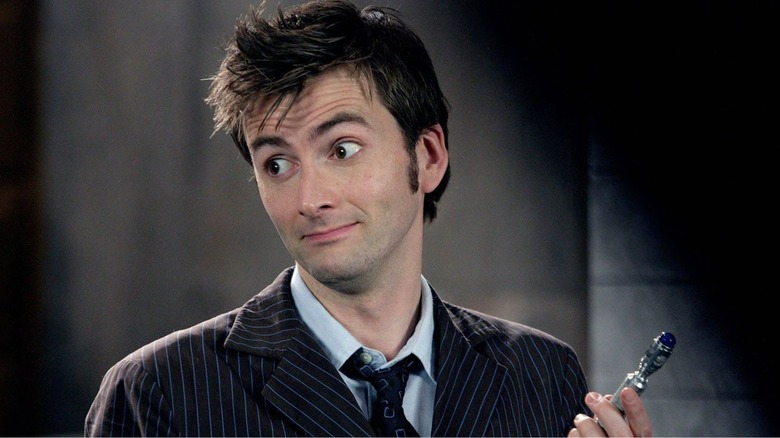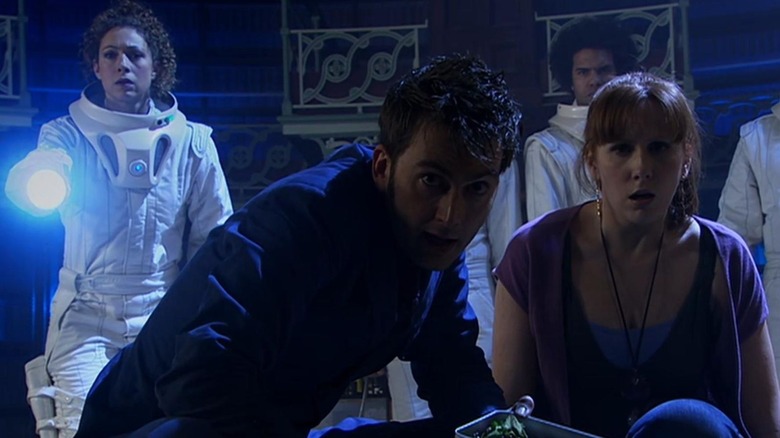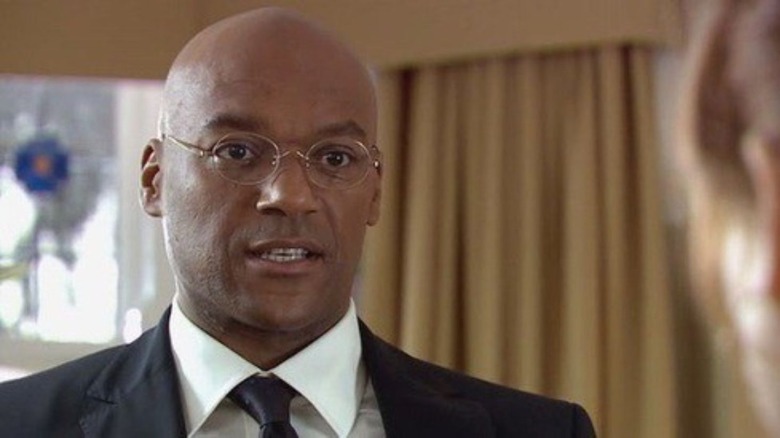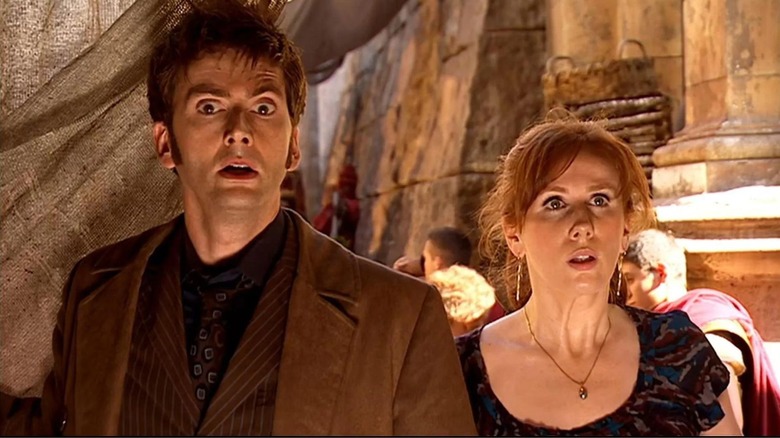Steven Moffat Has An Idea For How Doctor Who Will Finally End
Since its original run in 1963 and its revival in 2005, "Doctor Who" has been airing for 60 years. It's the longest-running sci-fi series in history, and we're approaching closer to its anticipated 60th-anniversary special by the day. From William Hartnell to Jodie Whittaker, we have, so far, witnessed 13 different, distinguished incarnations of the renegade Time Lord, each personality distinct, with its own quirks and idiosyncrasies. Every few years, the protagonist of the renowned BBC series reinvents itself to feature a new presence. The regeneration storyline in "Doctor Who" is a creative tool employed to hire different actors to lead the show — and also a fictional biological ability exhibited by the Time Lords as a means of cheating death. Every familiar face transforms into a new one; the character might prove to have a sticky memory now and then, but each Time Lord retains most of their experiences.
Interestingly, "Doctor Who" secretly introduced the 45th Doctor in its early years. Creator Steven Moffat had intended Doctor Moon (the artificially intelligent moon) from season 4 to be the 45th and final incarnation of the Time Lord. He also had a clever idea for a plotline to wrap up the show. The revelation was made in Doctor Who Magazine #551, in an issue where former showrunners Russell T. Davies and Steven Moffat interviewed each other.
Here's how Doctor Who was supposed to end
"Doctor Who" screenwriters Steven Moffat and Russell T. Davies interviewed each other in the June 2020 issue of Doctor Who Magazine, where it was revealed that the 45th Doctor had already made an appearance in season 4 ... and no one had noticed. During season 4, led by David Tennant's incarnation of the Time Lord, Whovians were treated to a future version of the Doctor — Doctor Moon — played by actor Colin Salmon. While Doctor Moon was only referred to as a sentient satellite at the time, the character was initially intended to be a future Doctor.
In the episode "Silence in the Library," the Tenth Doctor takes Donna on yet another adventure to a planet-sized library in the 51st century, where countless visitors had disappeared without a trace. The episode features Professor River Song leading an archaeological expedition and affirms she has met with the Doctor before, but he cannot identify her at this point in his life.
During the interview, Moffat shared a 2008 email to Davies, describing the story. It showcased that River Song was not just the Doctor's wife; she was his widow. River had witnessed his death on the battlefield before she began confusing younger versions of her late husband by going on adventures with them.
'River's not just his wife — she's his widow'
Here's the ending of "Doctor Who" as conceived by Steven Moffat in a 2008 email to Russell T. Davies:
"In my head (and ONLY in my head, this will probably never appear on screen, or be confirmed in any way), River's not just his [the Doctor's] wife — she's his widow. Somewhere in the terrible future, on a battlefield, the 45th Doctor dies in her arms and makes her the same promise she once made him — it's not over for you, you'll see me again. So River buries her husband and off she goes to have lots of adventures with his younger selves and confuse the hell out of them. Until, of course, she ends up in the data core of the Library Planet, and realizes she'll never see him again. And then she starts to wonder why anyone would call a moon 'Doctor.' Ahhh..."
Moffat still thinks the ending could work ... in a way
Steven Moffat confirmed that "some version" of the idea could still work as an effective conclusion to the long-running series. It would be so that The Doctor would worry that River would get lonely alone in the library, so he'd pop his dying mind inside a moon. "God, look at those words. I actually typed those words!!!!!!" recounted Moffat.
Russell T. Davies responded in the affirmative, describing the idea as "clever." He added, "Every time I watch that story, I think, it's him, it's the Doctor, and no one knows!"
Whovians love a well-kept secret, and it is safe to say we're never watching "Silence in the Library" the same way again. While the revelation is very unlikely to make it into "Doctor Who" canon and actually mark the show's ending, it's exciting to learn what the screenwriter's intention was while crafting the story. Doctor Moon was the final incarnation of the Time Lord who saved the universe countless times in the hit series, and until we see how the sci-fi story wraps up, at least we have this little tidbit to keep us entertained.



